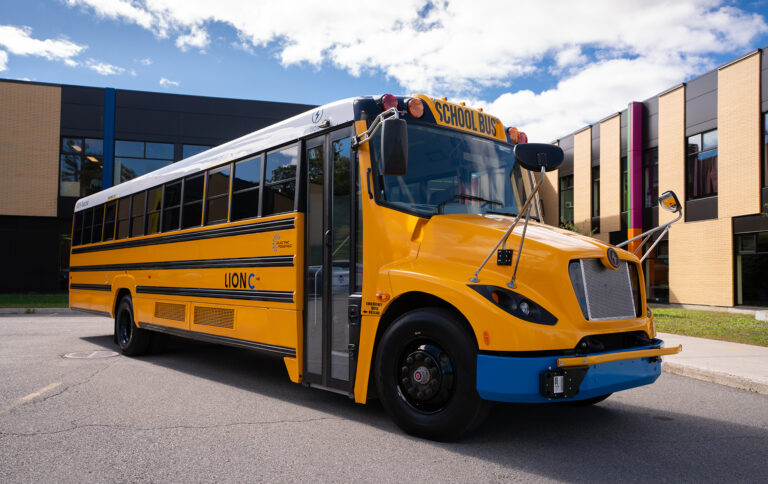
DENVER — Today, Governor Jared Polis of Colorado signed SB 193 into law, providing $65 million for an electric school bus grant program. The state will award funding to school districts to help finance, purchase, and maintain electric school buses, and to install EV charging infrastructure. Electric school buses will provide significant public health, economic, and energy security benefits for communities throughout the Centennial State.
“We commend Colorado for its continued leadership in transportation electrification,” said Ben Prochazka, executive director of the Electrification Coalition. “This monumental step will inspire states across the country to adopt electric buses, enabling a clean ride to school for all our children and accelerating our nation’s transition to a more secure and healthy transportation future.”
“Once deployed, buses remain in operation for 12 years,” Prochazka said. “Lawmakers must follow Colorado’s example and adopt policies now that will take diesel buses off the road and avoid locking in a decade’s worth of emissions and oil dependency.”
Of the nearly 500,000 school buses operating in the United States today, approximately 95% run on diesel fuel. Tailpipe emissions from diesel vehicles cause a variety of health problems in children, such as asthma, respiratory infections, cognitive impairment, and premature death. Replacing diesel buses with electric vehicles improves air quality. This is especially important for low-income communities, which are typically located near high-pollution corridors and are disproportionately exposed to health risks from transportation pollution.
Electric buses save school districts money, due to their lower operating and maintenance costs. Their high-capacity batteries can also improve the resilience of our electrical grid. Vehicle-to-grid technology enables electric school buses to serve as mobile power plants, providing stored energy back to the grid when demand is high or during a power outage.
New federal funding for electric school buses is available from the U.S. EPA’s Clean School Bus Program through the Infrastructure Investment and Jobs Act. By dedicating state funding for electric school buses, SB 193 will help maximize federal resources in Colorado. As more school districts switch to electric buses, increased demand will drive down upfront purchase costs.
In January, the Electrification Coalition and World Resources Institute hosted a roundtable discussion on the opportunities for widespread deployment of electric school buses throughout the state of Colorado. The session included remarks from Senator John Hickenlooper, Governor Jared Polis, state legislators, industry experts, and school districts that are leading the charge in the Centennial State.
School districts can use the Electrification Coalition’s Dashboard for Rapid Vehicle Electrification (DRVE Tool) to plan their transition to electric buses. The tool quickly analyzes unique fleet data to identify total cost and emissions savings of various electric vehicle models, including buses.
“The Electrification Coalition is eager to work with communities around the country to aid in their adoption of electric buses,” Prochazka said. “Our suite of technical resources and policy expertise can help identify funding opportunities, inform infrastructure planning, and generally ease the transition to cleaner vehicles.”
###
About the Electrification Coalition: The Electrification Coalition is a nonpartisan, nonprofit organization that advances policies and actions to facilitate widespread adoption of electric vehicles in order to reduce the economic, public health and national security risks caused by America’s dependence on oil.
